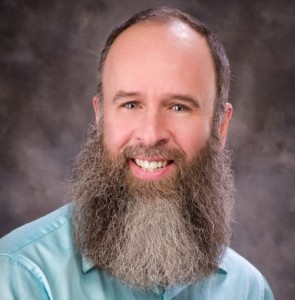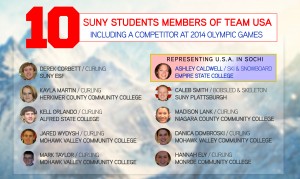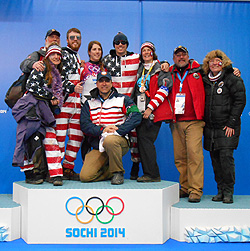 Kent Knappenberger is a music advocate, devoted mentor, and a GRAMMY Award winner. He received a bachelor’s degree from SUNY Fredonia and a master’s degree in music education, harp performance, and literature from Eastman School of Music.
Kent Knappenberger is a music advocate, devoted mentor, and a GRAMMY Award winner. He received a bachelor’s degree from SUNY Fredonia and a master’s degree in music education, harp performance, and literature from Eastman School of Music.
For the past 25 years, Knappenberger has been educating children as a music teacher and choir director at Westfield Academy and Central School in Central New York in a pursuit to teach and grow children through music. In addition, throughout his career, he has traveled around the world to promote the power of music and inspire those that are less fortunate.
This past January, Knappenberger was nationally recognized with the first-ever GRAMMY Music Educator Award. The GRAMMY Foundation reviewed over 30,000 candidates for the award, but Knappenberger’s everlasting commitment to education made him stand out as an indisputable leader in the progression of music education to children.
Knappenberger’s dedication to teaching and his contribution to furthering the education of children have truly brought the attention of the importance of music education to the world.
1. Why did you choose to attend SUNY Fredonia?
I was going to high school in Mayville, New York, where they participated in the 3-1-3 program. It seemed like a good deal, and I appreciated the opportunity.
2. Where did your passion for music education come from?
It came late… I was a dual major in the cooperative agriculture program (dairy science) (where I would have eventually needed to transfer to Cornell University to finish) and music composition. At the end of my 3rd full time year, (2nd as a music major) I was feeling like I was supposed to do something with music and people. I checked out both music therapy and music ed, and finally settled on music ed. All it took was about 20 minutes of my first music ed class for me to know I’d done the right thing. I was immediately engaged by the potential of the general music class at the secondary level. My teacher, Tom Regelski, literally “rocked my world’ about how kids could learn music, I mean EVERY kid, and exciting ways they could do it.
3. You have been a music teacher and choir director at Westfield Academy and Central School for 25 years. What have you learned over your 25 years of experience?
I like to say I’ve learned from my mistakes, which should mean I’m some kind of sensei by now (that was a joke!) but being in education and learning as a teacher are kind of inseparable. As far as kids are concerned, I’ve learned to be much more patient with how they are learning and how long they may need. There is so much variance from individual to individual, when we try to make how kids learn fit OUR time table, we run into trouble.
The process is really where it’s at. We can be very product oriented in music, you know doing concerts, performances, etc. that it can be easy to miss the other kinds of learning that are going on. The real challenge is how to help each kid find a place to fit musically and then help open the door for that to happen. We use alternative ensembles like handbells, recreational instruments, steel pans, where kids of widely differing abilities can be learning at the same time. Now that I’ve been at this a while, it’s been great to see what happens with students after graduation. When I first started out, I think I worried more about how things were going to turn out (you know, wondering if I would live through the next concert…)
4. You served as a volunteer music teacher at the Ana Gonzaga Methodist Institute in Rio de Janeiro. Can you tell us more about spreading your passion for music education abroad?
It just worked out that in 1991, I made plans to do some volunteer work at the Ana Gonzaga Methodist Institute, a few weeks before I arrived, the orphanage received a donation of band instruments from the US. I spent my time there teaching music lessons from guitar to trumpet, working with a choir and doing programs with the choir in local churches. It changed my life.
These were kids who had very few positives. Brazilian culture has music wrapped right around the center and it was amazing to see what happened to these kids with music. Me and my wife Nannette have returned to volunteer two more times together since 1991. We now have nine children, eight of whom are adopted from Brazil.
5. Congratulations on your award of the first-ever Music Educator Award by GRAMMY! How does it feel? What do you plan to do with this honor?
It was a huge surprise and I am very humbled. Since I’ve had a little time to adjust, I have enjoyed the opportunity to be an advocate for something so important to me: music ed. I’ve gotten to do more interviews than I can count in the last week and I welcome the chance to speak about the importance of music to our kids.
Congratulations to @SUNYFredonia alumnus Kent Knappenberger, presented with first-ever #GRAMMYs Music Educator Award! pic.twitter.com/6OBUOdI1RA
— State U of New York (@SUNY) January 27, 2014
6. Tell us about the Grammys! Most memorable moments?
The ceremony where I received my award was held the day before the telecast. At this event, the Special Merit Ceremony, all of the Grammy lifetime achievement awards were presented as well as the music educator award. Ringo Starr was in the audience (I found my eyes going to him several times during the speech I gave) and we got to speak afterward and get a photo. He is now my favorite Beatle! I also got to have good conversations about music ed. with Jimmy Jam, the producer, and Paul WIlliams the composer.
There were many famous musicians that performed at the telecast, but John Legend was my favorite. He just sat there at the piano and sang. No glitz, just a beautiful song. Having Pink almost land on our heads was NUTS! Immediately on my left was Ozzy. This will probably be the only time that he and I come that close to hanging out! Hearing Room Full of Teeth at the pre-telecast was AMAZING! They were also great to talk to.
7. Overall, how did your college education help prepare you for life and your career?
Fredonia was a great place for me to grow. It gave me a chance to figure things out about who I was. I had awesome friends whom I will never forget as well. As for the music, it was a blast I had an awesome Music Theory teacher, Keith Peterson (we still sing his music at my school); I loved Walter Hartley, two great studio teachers, who always gave me a chance (Laurence Wyman and Mario Falcao); and Don Lang kept me on my toes for two years in Chamber Singers. I had many great teachers there and made lots of wonderful music.
Tom Regelski’s ME-300 class is what really did it for me in music ed. When I left Fredonia, I had a great philosophical basis for teaching, absolutely functional musical skills, diverse experiences (from FJE, Chamber Singers to Wind Ensemble, Orchestra and Opera Scenes), I’d had a chance to grow personally, and an atmosphere I will NEVER forget. I use skills I practiced at Fredonia and ideals I learned there every single day.
8. What advice do you have to share with SUNY students? Any tips for aspiring educators?
For students, Be Free! Graze! (sorry, that’s an inside joke) But seriously, not all colleges are as respectful of the growth that you NEED to do as a person. Don’t be threatened by popular opinion. It’s okay for you to strengthen your values and learn a few new ones. Make your curriculum as diverse as you can and spend your time finding out what you can contribute to our world. You don’t need to be the best, but you do need to be YOU. Make it a good one.
As far as for aspiring educators, teaching and learning aren’t the same. If helping kids learn is your bottom line, you’ll be successful on the first day. Kids are heart-filling, heart-breaking and life-giving. Don’t be afraid at investing in something so precious.




very nice man
I know him and his musics is a great art.